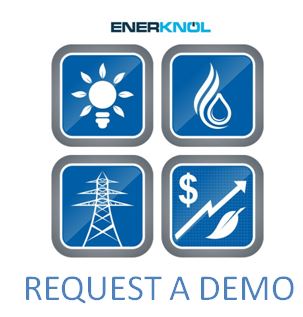Executive Summary 2015 will be a showdown over President Obama’s energy legacy through regulatory change and pushback from the 114th Congress, all while looking ahead at the 2016 elections. The outcome will have a dramatic impact on utilities, conventional and renewable energy industries and federal and state government in 2015 and beyond.
The recent debates over the Keystone XL pipeline – and its amendments – have foreshadowed both the Republican legislative agenda and the Democratic strategies to stop it, as well as possible bipartisan compromise that could lead to a comprehensive energy efficiency bill. Republicans will focus on securing oil and gas in the “all of the above energy strategy,” and Democrats aim to block partisan legislative efforts by putting Republicans on record as either supporting or denying human contribution to climate change.

 In addition, as executive agencies begin to roll out plans for proposed and final climate regulations, the Republican-held Congress will employ all its spending and legislative powers to block or delay many of the more than two dozen planned agency regulations that will impact the energy industry. At the end of either extreme, the outcome of this standoff will result in either veto-proof legislation supporting oil and gas infrastructure and exports or a barrage of climate regulations that would stifle conventional energy generation, maybe both. Most likely, lawmakers will settle for a politically responsible middle ground that will focus on energy efficiency and tempered infrastructure measures. Republicans will likely rely on spending and oversight authorities to curb the impact from agency rules and look ahead to maintaining control in 2016.
In addition, as executive agencies begin to roll out plans for proposed and final climate regulations, the Republican-held Congress will employ all its spending and legislative powers to block or delay many of the more than two dozen planned agency regulations that will impact the energy industry. At the end of either extreme, the outcome of this standoff will result in either veto-proof legislation supporting oil and gas infrastructure and exports or a barrage of climate regulations that would stifle conventional energy generation, maybe both. Most likely, lawmakers will settle for a politically responsible middle ground that will focus on energy efficiency and tempered infrastructure measures. Republicans will likely rely on spending and oversight authorities to curb the impact from agency rules and look ahead to maintaining control in 2016.
The following provides a detailed look at the legislative and regulatory agenda in 2015, including the political strategies in Congress and an overview of planned Obama Administration regulations; the potential impacts to industry from this agenda; and actionable next steps.
 EnerKnol Data – One-stop solution for comprehensive, tailored U.S. energy policy information. You will need this as there are thirty bills addressing oil and gas that were introduced in the first three weeks of the new Congress.
EnerKnol Data – One-stop solution for comprehensive, tailored U.S. energy policy information. You will need this as there are thirty bills addressing oil and gas that were introduced in the first three weeks of the new Congress.
The first Republican energy bills in 2015 have addressed the oil and natural gas supply chain, including natural gas transmission and distribution infrastructure, LNG permitting and offshore oil drilling and oil exports. In the first three weeks of the new Congress, lawmakers introduced 30 bills addressing oil and natural gas, most of which were re-introduced versions of previous legislation that passed the House but stalled in the Senate during the 113th Congress. When the first of these bills (the Keystone XL pipeline) was brought to the floor, Democrats responded by attaching provisions designed to record Republicans’ official stance on whether human activity has contributed to climate change, an expected platform during the 2016 debates.
 Beyond energy legislation, an overarching Republican theme in the 114th Congress will be using congressional oversight and spending authorities to monitor and curb how the EPA implements new climate rules and permitting requirements under the Clean Air Act. To achieve this, Republicans will use both standalone legislation and other vehicles, such as regulatory reform bills, spending measures, and committee oversight hearings.
Beyond energy legislation, an overarching Republican theme in the 114th Congress will be using congressional oversight and spending authorities to monitor and curb how the EPA implements new climate rules and permitting requirements under the Clean Air Act. To achieve this, Republicans will use both standalone legislation and other vehicles, such as regulatory reform bills, spending measures, and committee oversight hearings.
The Keystone XL pipeline was the first piece of major legislation considered in 2015, and the inclusion of more than 80 amendments from both parties to S.1, the Keystone XL Pipeline Act, have foreshadowed the coming energy debate. The bill was introduced by Sens. John Hoeven (R-ND) and Joe Manchin (D-WV) on January 6 and is cosponsored by 59 Senators, including six Democrats. As we saw this bill was passed but not veto proof and now goes to Obama’s desk for the final look.
A number of Republican-sponsored amendments to S.1 have included efforts to expand oil and gas infrastructure and exports. Proposed Republican amendments to the Keystone bill have included provisions to eliminate the requirements for a presidential permit and greenhouse gas emission analyses in the approval process for cross-border energy infrastructure. For example, Sen. Cruz (R-TX) introduced S.Amdt 16, the North American Infrastructure Act, a bipartisan bill from the 113th Congress that would eliminate the presidential permit requirement for cross border oil and natural gas pipelines and electric transmission facilities, among other provisions. Sen. Fischer (R-NE) introduced S.Amdt.19, which would eliminate the need for federal agencies to consider greenhouse gas emissions when completing their environmental impact statements to meet National Environmental Policy Act (NEPA) requirements.
While neither amendment has yet been considered on the Senate floor, proposals point to upcoming legislation that will establish statutory guidelines for approving pipeline infrastructure. The House Energy and Commerce committee introduced several bills during the previous Congress expected to be re-introduced in the coming months to set timelines and clear processes for pipeline project review and approval. This includes provisions to temper environmental review requirements. On Jan. 6, Rep. Mike Pompeo (R-KS) reintroduced the Natural Gas Pipeline Permitting Reform Act (H.R. 161), which would both establish statutory deadlines for the Federal Energy Regulatory Commission (FERC) and other agencies to approve permits for constructing new interstate natural gas pipelines. While there is political momentum for facilitating cross-border infrastructure, Democrats and the White House will oppose provisions to restrict presidential involvement or dilute NEPA requirements. The requirements will have to be cut or tempered to pass the White House.
In addition to facilitating cross-border energy infrastructure, Republicans aim to expedite natural gas exports and remove the ban on exporting crude oil. To the Keystone bill, Sen. Ted Cruz (R-TX) introduced both S.Amdt.15, which would expedite liquefied natural gas (LNG) export applications to world trade organization member countries; and S.Amdt.14, which would repeal presidential authority to restrict oil exports. S.Amdt.14 could still pass for inclusion in the Keystone package, but Republicans will likely wait on including an amendment over oil exports to avoid any measure that could keep Democrat Senators from an up-vote on Keystone.
Either way, bills covering both topics are in the queue for floor consideration. The Senate Energy and Natural Resources Committee held a hearing on Jan. 29 to examine the LNG Permitting Certainty and Transparency Act (S.33), sponsored by Sens. John Barrasso (R-WY) and Martin Heinrich (DNM). The bill aims to expedite Department of Energy (DOE) decisions on LNG export applications involving non-Free Trade Agreement (FTA) countries. The legislation would set a 45-day deadline for DOE to approve or deny applications after NEPA review publication and provide LNG export applicants with expedited judicial review if DOE fails to act within the 45-day deadline. On Jan. 6, Rep. Jim Bridenstine (R-OK) re-introduced the Domestic Prosperity and Global Freedom Act (H.R. 89), the House companion bill.
Expediting LNG exports has considerable political momentum. Original cosponsors to the Senate bill include lawmakers from both parties including Sens. Cory Gardner (R-CO), Heidi Heitkamp (D-ND), John Hoeven (R-ND), Tim Kaine (D-VA), Shelley Moore Capito (R-WV) and Michael Bennet (D-CO). In addition, points raised by multiple House Energy and Commerce hearings held last year that focused on energy as a diplomatic tool have gained bipartisan traction. Lawmakers on both sides are saying the legislation would allow LNG exporters to capitalize on increased domestic production to become competitive suppliers in the global market, with indirect geopolitical implications for Ukraine and EU consumer countries currently reliant on Russia. The primary LNG bill provisions would likely pass Congress and the White House, if the measure could survive policy riders attached in the Senate. While standalone oil export legislation, such as the Crude Oil Export Act sponsored by Michael McCaul (R-TX), has garnered Republican co-sponsors and will likely pass the House, a bill to repeal the oil export ban will not likely find the same political momentum. A lift on the ban is not anticipated in 2015 but has already been a talking point for 2016 political campaigns, particularly for Republicans like Sen. Cruz, who is expected to announce a run for the Republican ticket.
 On the other side, a central Democrat strategy in handling the Republican Congress in 2015 will be to pin down Republicans from swing states who face reelection in 2016 on stating their view on climate change. They will also attach amendments to bills that will allow political posturing for Democrats. In 2016, Democrats will have to defend only 10 congressional seats, while Republicans will be defending 24, with particularly vulnerable Republicans in seats where President Obama won in 2008 and 2012 – Florida, Illinois, Iowa, New Hampshire, Ohio, Pennsylvania and Wisconsin. The first glimpse of this strategy came during the January 9 Senate Energy and Natural Resources markup hearing. During the markup, Sen. Sanders (I-VT) introduced an amendment that would require Republicans to agree to a “sense of Congress” on climate change: that it is real, is caused by human activity, has caused “devastating problems,” and that the U.S. must transform its energy system to address these problems. The amendment was tabled so the bill could pass to the Senate floor. At least ten Democrat amendments have included “messaging provisions” on climate change, including the following:
On the other side, a central Democrat strategy in handling the Republican Congress in 2015 will be to pin down Republicans from swing states who face reelection in 2016 on stating their view on climate change. They will also attach amendments to bills that will allow political posturing for Democrats. In 2016, Democrats will have to defend only 10 congressional seats, while Republicans will be defending 24, with particularly vulnerable Republicans in seats where President Obama won in 2008 and 2012 – Florida, Illinois, Iowa, New Hampshire, Ohio, Pennsylvania and Wisconsin. The first glimpse of this strategy came during the January 9 Senate Energy and Natural Resources markup hearing. During the markup, Sen. Sanders (I-VT) introduced an amendment that would require Republicans to agree to a “sense of Congress” on climate change: that it is real, is caused by human activity, has caused “devastating problems,” and that the U.S. must transform its energy system to address these problems. The amendment was tabled so the bill could pass to the Senate floor. At least ten Democrat amendments have included “messaging provisions” on climate change, including the following:
-
- S.Amdts.7 and 8, both sponsored by Sen. Brian Schatz (D-HI) – that fighting climate change requires transitioning away from “dirty energy, such as oil and coal” and that Congress should “take action to reduce greenhouse gas emissions and heat-trapping pollution;”
- S.Amdts.11 and 12, both sponsored by Sen. Merkely (D-OR), that “climate change is real” and “due to human activity;”
- S.Amdt.24, sponsored by Sen. Sanders (I-VT), that “climate change is real” and that “it is imperative that the United States transform its energy system away from fossil fuels and toward energy efficiency and sustainable energy as rapidly as possible.
- S.Amdt.29, sponsored by Sen. Whitehouse (D-RI), that “climate change is real and not a hoax.”
- S.Amdt.31, sponsored by Sen. Kaine (D-VA), that “human activity significantly contributes to climate change.”
- S.Amdt.58, sponsored by Sen. Schatz (D-HI), that “climate change is real and human activity significantly contributes to climate change.”
- S.Amdt.99, sponsored by Sen Manchin, (D-WV), that “climate change is real, it is caused by human activity, and it is already causing devastating problems.”
In response, Senate Majority Leader Mitch McConnell (R-KY) will attempt to keep these measures from being put on the record. Republican leadership in the Senate has tabled any amendments brought to the floor that explicitly state that climate change is caused by human activity, effectively keeping vulnerable Republicans from being forced to vote on controversial statements. The one climate change amendment that has been brought to a vote and passed was S.Amd.24, sponsored by Sen. Whitehouse, which simply states that “climate change is real, and not a hoax.”
As of Jan. 25, the Senate had voted on 15 amendments, not including nine Democrat amendments tabled without a vote, approving four. Rejected measures included Democrat amendments to ensure oil transported through the pipeline was used to reduce U.S. dependence on Middle Eastern oil (failed 57-42) and to require that U.S. materials be used to construct the pipeline (failed 53-46). Sen. McConnell has moved to invoke cloture on the bill, which would end debate and require a final vote.
The passed energy efficiency amendment has paved the way for lawmakers on both sides to find a source of bipartisan compromise that will be essential to achieving even part of Republican and Democrat energy agendas. Sen. Rob Portman (R-OH) introduced S.Amdt.3 to the Keystone bill, a modified version of the bipartisan Energy Savings and Industrial Competitiveness Act he co-sponsored with Sen. Shaheen (D-NH) last year. The amendment, the Energy Efficiency Improvement Act of 2015, would address energy efficiency measures in federal and other buildings. The amendment includes high-performance energy efficiency measures, the voluntary Tenant Star program, grid-enabled heaters and a database for storing publicly available energy related building information. The amendment passed overwhelmingly by a vote of 94-5. Even if the Keystone bill is vetoed by the President, the vote on the energy efficiency amendment has demonstrated bipartisan support and increased likelihood as a vehicle for a comprehensive energy bill.
 Moving forward, the Keystone bill fell short of veto-proof 67-vote threshold. Now the bill will depend on how President Obama considers the progress made in the State Department’s analysis. On January 19, the State Department notified eight federal agencies – Energy, Defense, Transportation, Homeland Security, Justice, the Interior, Commerce and the Environmental Protection Agency – to complete their project assessments by February 2. This is the final step before Secretary of State John Kerry’s final review. President Obama previously threatened to veto the bill. Either way, the amendments and the debate indicated next steps for both parties, not least of which was the vote over Portman’s energy efficiency bill.
Moving forward, the Keystone bill fell short of veto-proof 67-vote threshold. Now the bill will depend on how President Obama considers the progress made in the State Department’s analysis. On January 19, the State Department notified eight federal agencies – Energy, Defense, Transportation, Homeland Security, Justice, the Interior, Commerce and the Environmental Protection Agency – to complete their project assessments by February 2. This is the final step before Secretary of State John Kerry’s final review. President Obama previously threatened to veto the bill. Either way, the amendments and the debate indicated next steps for both parties, not least of which was the vote over Portman’s energy efficiency bill.
Republicans will focus on regulatory reform, spending legislation, and oversight to block a number of the regulations slated for 2015. According to 2014 Regulatory Agendas published by individual agencies, the administration will propose or finalize over two dozen regulations in the next year that will directly impact energy industries, including energy efficiency and oil and gas industries.
Republicans will re-introduce a number of measures that aim to require increased transparency and accountability in the rulemaking process as well as use spending authorities to influence upcoming regulations. In early January, the House passed the Regulatory Accountability Act (H.R. 185), which backers say will boost transparency and streamline the rulemaking process by adding a number of new compliance requirements. The bill includes a requirement for EPA, DOE, and other agencies to determine “the least costly method” for industry to meet new regulations and a requirement for judicial rule of draft rules. The administration issued a veto threat on the bill. Republicans in both chambers have also reintroduced the Regulations from the Executive in Need of Scrutiny (REINS) Act, which would require Congress to approve major rules before they would go into effect.
Other recently introduced measures aim at curbing EPA regulations in particular. For example, S. 66, sponsored by David Vitter (R-LA), would prohibit “any regulation regarding carbon dioxide or other greenhouse gas emissions reduction in the United States until China, India and Russia implement similar reductions.” The bill cites a 1997 Senate Resolution that the United States should not accept any agreement that would mandate new commitments to limit or reduce greenhouse gas emissions by developed countries unless the agreement also mandated new specific scheduled commitments to limit or reduce greenhouse gas emissions by developing countries within the same compliance period, noting that the administration continues to move forward with carbon dioxide emission regulations even while China, India and Russia have not imposed similar regulations. Another bill, S. 156, sponsored by Sen. Bill Cassidy (R-LA), would prohibit the EPA from promulgating final energy-related rules that are estimated to cost more than $1M and would cause “significant adverse effects to the economy.”
Finally, Republicans will use spending legislation to defund administration programs through standalone bills or as policy riders to appropriations packages. In particular, Republicans will try to defund programs related to the Clean Power Plan and rules to reduce greenhouse gas emissions. For example, Republicans have already introduced legislation in both chambers that would “rescind funds made available to the administrator of the Environmental Protection Agency if the administrator fails to meet certain deadlines.” The Senate bill, S. 110, is sponsored by Sen. Dean Heller (R-NV), and its House companion bill, H.R. 352, is sponsored by Rep. Sean Duffy (R-WI).
We will have a very interesting 2 years ahead of us as the posturing will be monumental.

Donovan Lazar | Chief Revenue Officer
dl@enerknol.com | 212-537-4797 ext. 8







